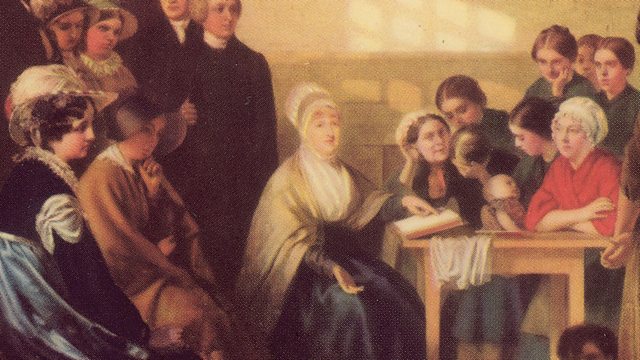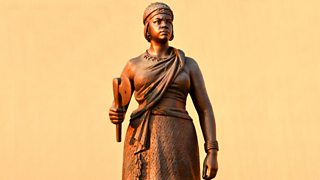Elizabeth Fry: 'The angel of prisons'
How a nineteenth century Quaker philanthropist shook up the way prisoners were treated in England and beyond.
Life behind bars in English prisons in the early nineteenth century was, to put it mildly, grim. Prisons at the time were often damp, dirty and over-crowded. Common punishments included shipping convicts to colonies like Australia - and many crimes carried the death penalty. And the poor suffered most of all, because they couldn’t buy privileges like extra food rations. Into all this walked a woman known as the "angel of prisons", Elizabeth Fry. She was one of the major driving forces behind a new way of thinking about prisons – one that stressed that improving conditions for prisoners and treating them with humanity would lead to better outcomes and lower re-offending rates. A Christian philanthropist from a large Quaker family, her ideas were taken up across much of Europe, and she became something of a celebrity in Victorian England.
Joining Rajan Datar to discuss her work and legacy are:
Averil Douglas Opperman, author of a biography of Elizabeth Fry called 'While It Is Yet Day'; Criminal barrister, Harry Potter, author of 'Shades of the Prison House – A History of Incarceration in the British Isles'; And Rosalind Crone, historian and author of 'The Guide to the Criminal Prisons of Nineteenth-Century England'.
Produced by Jo Impey for the World Service.
Image: Painting by Jerry Barrett depicting Elizabeth Fry reading to prisoners at Newgate, 1816
Image credit: Henry Guttmann / Hulton Archive / Getty Images
Last on
More episodes
Previous
Broadcasts
- Thu 1 Oct 2020 09:06GMT����ý World Service
- Thu 1 Oct 2020 23:06GMT����ý World Service
- Sat 3 Oct 2020 15:06GMT����ý World Service News Internet
- Sun 4 Oct 2020 14:06GMT����ý World Service except News Internet
- Mon 5 Oct 2020 02:06GMT����ý World Service
Featured in...
![]()
Revolutionary women—The Forum
Warriors, scientists, visionaries: women who changed the world
What is the role of libraries in the digital age?
Podcast
-
![]()
The Forum
The programme that explains the present by exploring the past




